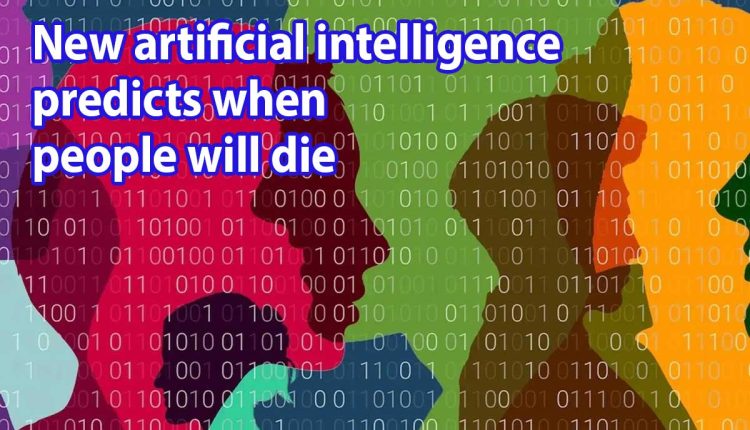New artificial intelligence predicts when people will die
The scientists’ new model, which was trained based on the life stories of millions of people in Denmark, predicts the outcomes of people’s lives with high accuracy.
If you could see a few pages of your life story ahead of time, would you look at them? Artificial intelligence may be able to provide a version of that choice, according to a new study published in the journal Nature Computational Science. The authors of the article say that the prediction algorithm, with the help of millions of people’s life data, can accurately predict life outcomes such as lifetime income or the possibility of facing an early death.
Matthew Salganik, a sociologist at Princeton University who was not involved in the new research, says that if this approach can be shown to work in different societies, it would give social scientists a new tool to study how characteristics and events affect the fate of people.
Previously, Salganik and his colleagues, along with more than 100 other teams, had tried to develop machine learning models to predict life outcomes using information about the health, family relationships, and education of about 5,000 children over the age of 15. However, none of their models made accurate predictions.
In their new study, the researchers used large language models (of which JPT chat is also of this type). These algorithms first analyze a huge volume of texts and look for patterns in strings of words and sentences. The models then use what they’ve learned to predict the next words in a sentence.
Sonne Lehmann, a network and complexity scientist at the Technical University of Denmark, and her colleagues were curious about whether large language models could make sense of other sequences, such as those that make up the story of our lives. “Just like language, the order of events in life matters,” he says. “For example, a cancer diagnosis soon after finding a job with health benefits is likely to have a different effect than the other way around.”
The researchers used information from work records and health records of about six million citizens of Denmark. They translated details such as salary, social benefits, job titles, and hospital visits, and diagnoses into an artificial language where life events were converted into sentences. For example, the sentence “Agnes earned DKK 30,000 in August 2010 as a midwife at a hospital in Copenhagen.” By placing these events on a timeline, the scientists’ model recreated a digital story of a person’s life.
The scientists caution that the observed patterns may not be generalizable to non-Danish populations
The researchers trained their model, which they called life2vec, on each person’s life story between 2008 and 2016, and the model found patterns in the stories. They then used the algorithm to predict which people would die by 2020 and determined its accuracy using data from the Danish Civil Registry Office.
According to Science, the model’s predictions were accurate in 78% of cases. The model identified several factors, including having a low income, having a diagnosis of a mental health problem, and being male, which increased the risk of premature death. Model errors were usually caused by accidents or heart attacks, which are difficult to predict.
Although the results are interesting, some scientists caution that these patterns may not be generalizable to non-Danish populations. University College London psychologist Yoyo Wu says it’s interesting to see that the model works on data from other countries, but it’s also important to note that biases in the data can also affect predictions. For example, overdiagnosis of schizophrenia among black people could cause the algorithm to falsely consider them to be at higher risk of premature death. This can have implications in terms of issues such as insurance premiums or employment decisions.
Lehmann and his colleagues also found that their model accurately predicted other aspects of people’s lives, such as whether they were more extroverted. Of course, Sandra Matz, a computational social scientist at Columbia Business School, says, “It’s not that surprising. Even simpler algorithms can associate certain occupations (e.g. hairdressing) with extroversion. I doubt that this model can predict all types of behavior.”
Lehmann believes that their model may one day be useful in identifying people at risk of disease and help them take the necessary steps to maintain their health.
